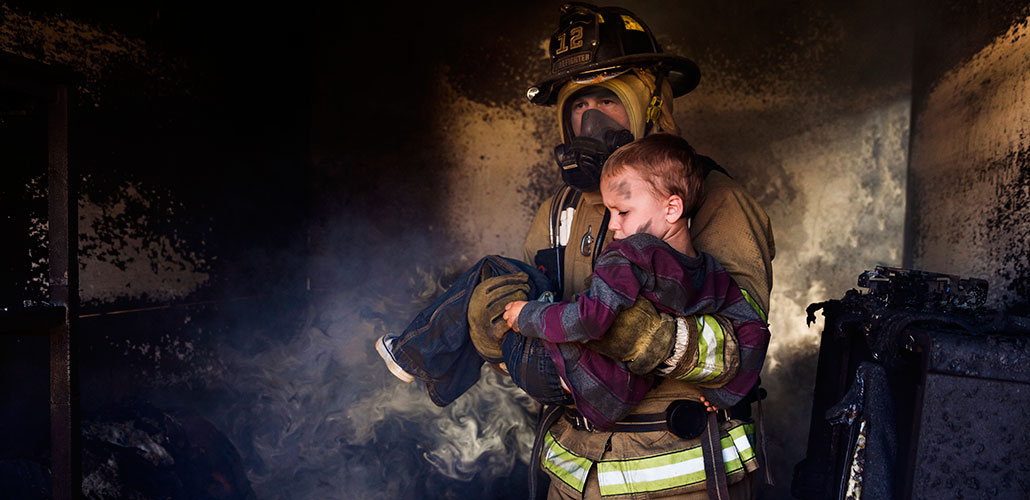
Firefighters are exposed to mentally taxing and traumatic events on a regular basis. From burning buildings, to medical emergencies, to car accidents, to various other crises in between, any call on any day can bring daring rescues that firefighters must be ready to respond to at any moment. In some cases, that response is to a call involving severe injuries or even unexpected deaths with little time to process or decompress from the event they just witnessed before having to move on to the next call.
For the average person, experiencing just one of these emergencies once can be enough to provoke post-traumatic stress disorder (PTSD) symptoms. This mental toll is on top of the biological, chemical, and physical hazards of the job that are well known and visible. However, there is a societal expectation that firefighters and other first responders take these events in stride. That expectation appears to be changing as more lawmakers begin to understand the compounding damage firefighters and first responders endure throughout their careers.
On February 2nd, a piece of bipartisan legislation was introduced to the Minnesota Legislature that seeks to establish a funding program to help all firefighters, including part-time and volunteers, dealing with mental health complications and those who are diagnosed with cancer or heart disease.
HF 377 seeks to address four main points:
- Provide a critical care policy that allows for a one-time monetary payment of up to $30,000 to firefighters diagnosed with cancer or heart disease. The applications for the benefit will run through the Minnesota Firefighters Initiative (MnFIRE);
- Develop a counseling program through the Minnesota Fire Assistance Program specific to firefighters and offers five sessions per year;
- Offer firefighters with additional psychological needs ongoing and extended counseling services;
- Provide funding to develop and annually update and provide a two-hour training on cancer, heart disease, and PTSD as causes of illness and death for firefighters. The training, presented by firefighters, will give steps and best practices to limit occupational risks like cancer and PTSD while promoting overall wellbeing.
Minnesota currently ranks 48th among states in funding per capita for money spent on firefighting. The current budget realities have created critical shortages and forced departments to make difficult decisions on if they can prioritize equipment or firefighter health and safety measures. Meanwhile, one in five Minnesota fire departments have reported at least one firefighter diagnosed with cancer and recent studies have shown that about 45% of on-duty firefighter deaths are caused by cardiovascular injuries. This bill would provide roughly an additional $7.3 million to help support the thousands of firefighters across the state better understand and prepare for the hazardous realities of their positions.
Based on the proposed legislation, the firefighter must have a current diagnosis of cancer or heart disease, or have been diagnosed within the past year in order to qualify for the monetary payment and the firefighter’s application for monetary support must include a certification from the firefighter’s health care provider of the firefighter’s diagnosis with cancer or heart disease. Per the statutory language, the Minnesota Firefighters Initiative will be responsible for establishing the criteria and scale the monetary support provided to each firefighter according to the severity of the diagnosis.
While this bill is only proposed legislation, it signals another step forward in the state legislator recognizing the stress and mental anguish firefighters and other first responders amass during their public service careers. In 2018, the Minnesota Legislature passed a bill to amend the workers’ compensation statute to provide an evidentiary presumption for PTSD in certain first responders. The presumption presumes that a first responder diagnosis with PTSD is an occupational disease as long as there was no prior diagnosis. However, this presumption is rebuttable which is why it is important to reach out and speak with legal professionals who specialize in this area of law and understands the realities faced by first responders.
Please join us at Meuser, Yackley & Rowland, P.A. in supporting the important work being done by MnFIRE as they continue to advocate and sponsor legislation to support firefighters and their families in Minnesota.
